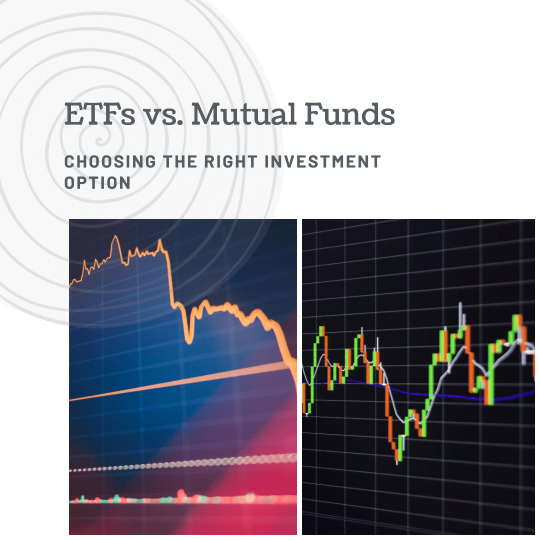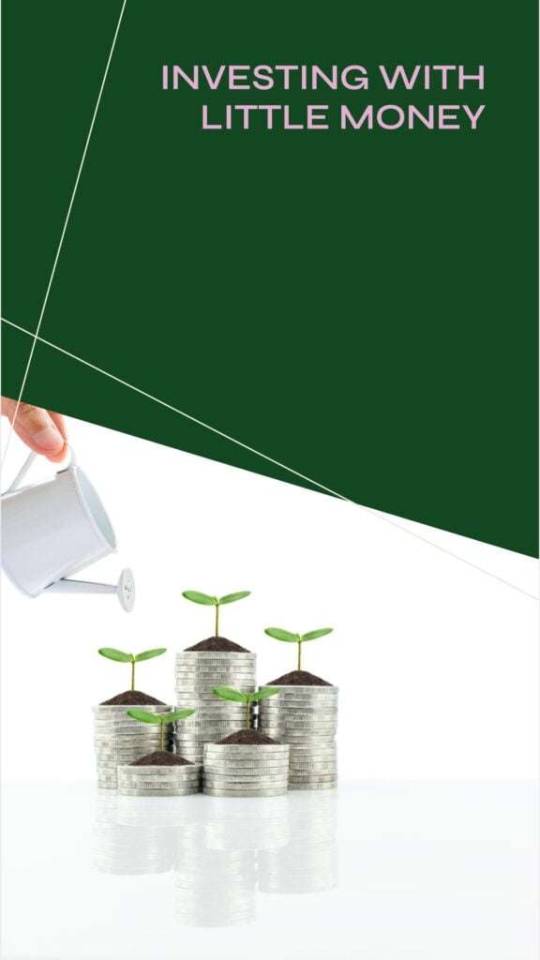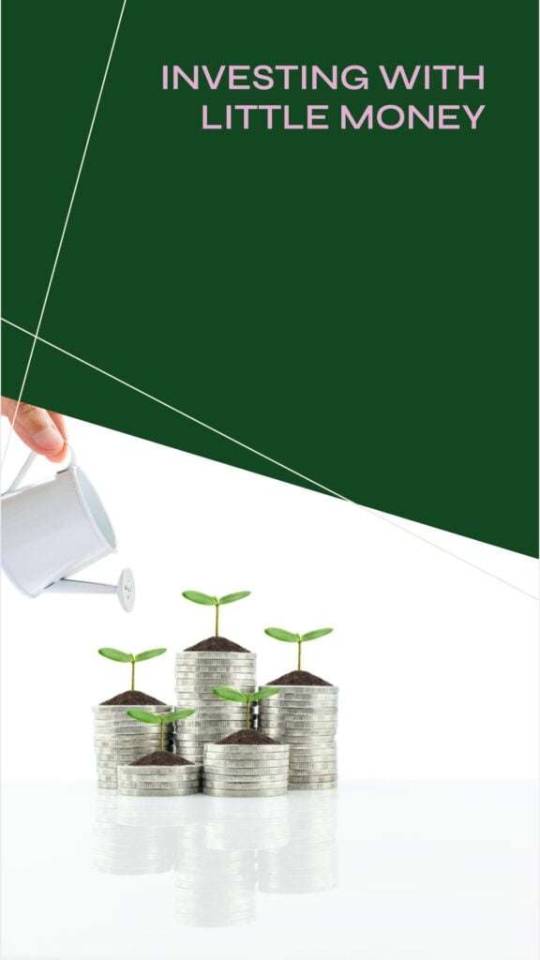#HealthCareStocks
Explore tagged Tumblr posts
Text
How (NYSE: HAE)is Shaping the Healthcare Market.
(NYSE:HAE) plays a key role in shaping the healthcare sector, driving trends with its strategic initiatives and innovative practices. Its position within the NYSE healthcare stocks sector makes it a vital focus for market observers tracking the sector’s performance and growth. This development highlights its potential influence on healthcare industry dynamics.
Read more :
https://kalkinemedia.com/us/companies/nyse-hae
0 notes
Text
Stock Market Swings Amid Geopolitical Tensions: Tech Stocks Drop, Healthcare Rises #Apple #bullrun #centralbanks #correction #DowJonesIndustrialAverage #earningsgrowth #energystocks #geopoliticaltensions #globaloilsupplies #healthcarestocks #InterestRates #IranianMajorGeneralQasemSoleimani #loftyvaluations #marketdirection #Merck #Microsoft #MiddleEast #NASDAQComposite #oilprices #pfizer #Recession #SP500 #Stockmarket #techstocks #USdronestrike
#Business#Apple#bullrun#centralbanks#correction#DowJonesIndustrialAverage#earningsgrowth#energystocks#geopoliticaltensions#globaloilsupplies#healthcarestocks#InterestRates#IranianMajorGeneralQasemSoleimani#loftyvaluations#marketdirection#Merck#Microsoft#MiddleEast#NASDAQComposite#oilprices#pfizer#Recession#SP500#Stockmarket#techstocks#USdronestrike
0 notes
Text
The Best Investment Options During Global Conflicts and Cold Wars


1. Why is it important to invest during global conflicts and cold wars? 2. How can alliances and partnerships help secure your investments? 3. What are the best investment options during global conflicts and cold wars? 4. How can defense stocks be a stable investment during global conflicts? 5. The importance of investing for the long term during cold wars Case Study Q: What is the impact of international peace on modern security and trade? Q: How does international peace affect supply chains? Q: What role does international peace play in the overall strategy of nations? Q: Is international peace influenced by geopolitical tensions? Q: How does international peace impact the resilience of economies? Q: What is the role of international organizations in promoting international peace? Q: How does international peace contribute to the security of cyberspace? Q: Can the outbreak of conflicts impact international trade? Q: What is the relationship between international peace and the deployment of new technologies? Q: How does international peace impact policymaking? Global conflicts and cold wars can create economic and geopolitical uncertainties that can significantly impact investments. However, it is important to consider investing during these periods as it can offer various advantages and opportunities for financial growth and stability.
1. Why is it important to invest during global conflicts and cold wars?
1.1 Safeguarding your investments During times of global conflicts and cold wars, there is a higher risk of economic and political upheaval. By investing in secure assets, you can better safeguard your investments and minimize potential losses. 1.2 Building resilience in your portfolio Investing during global conflicts and cold wars allows you to build resilience in your portfolio. Diversifying your investments across different sectors and asset classes can help mitigate risks and protect your wealth. 1.3 Strengthening your economy amidst crisis Investments during global conflicts and cold wars can strengthen your economy by providing stability and growth. Your investments contribute to the overall Gross Domestic Product (GDP) and support economic development despite the challenging circumstances.


2. How can alliances and partnerships help secure your investments?
2.1 Investing in sectors with strong alliances Choosing investment options in sectors that have strong alliances and partnerships can help secure your investments. Companies that collaborate internationally and have a strong network of allies are more likely to weather geopolitical uncertainties. 2.2 Leveraging the power of international cooperation International cooperation is crucial during times of global conflicts and cold wars. By investing in industries that heavily rely on export and benefit from international cooperation, you can capitalize on the stability and growth that these alliances provide. 2.3 The role of the private sector in safeguarding investments The private sector plays a vital role in safeguarding investments during global conflicts and cold wars. By investing in companies that prioritize research and development, intellectual property protection, and have the capacity to withstand economic shocks, you can secure your assets.

3. What are the best investment options during global conflicts and cold wars?
3.1 Investing in precious metals like Gold and Silver Precious metals like Gold and Silver are considered safe-haven assets during times of geopolitical tensions. These metals have a long history of retaining their value and can act as a hedge against inflation and currency fluctuations. 3.2 Real estate as a secure investment during geopolitical tensions Real estate investments are often viewed as secure during global conflicts and cold wars. Investing in properties can provide both financial stability and rental income, making it an attractive option for long-term investors. 3.3 Healthcare stocks as a defensive investment Healthcare stocks can be a defensive investment during times of global conflicts and cold wars. Regardless of the geopolitical climate, healthcare remains an essential industry. Investing in companies in this sector can provide stability and potential growth.


top 10 startup mistakes
4. How can defense stocks be a stable investment during global conflicts?
4.1 The long-term prospects of defense stocks Defense stocks can offer stability and growth potential during global conflicts and cold wars. Governments tend to prioritize defense spending to ensure national security, making defense companies a stable investment option. 4.2 Capitalizing on international peace and cooperation During periods of international peace and cooperation, defense stocks can experience growth. As tensions ease and countries focus on rebuilding relationships, defense companies can benefit from increased defense budgets and cooperation. 4.3 Boosting your portfolio with investments in the defense sector Investing in the defense sector can provide diversification and stability to your portfolio. Defense companies often have long-term contracts and government support, making them a reliable investment during global conflicts and cold wars.

5. The importance of investing for the long term during cold wars
5.1 Understanding the impact of global challenges on investments Investing for the long term during cold wars requires a deep understanding of the impact of global challenges on investments. It is crucial to analyze the geopolitical climate, economic trends, and potential risks to develop a resilient investment strategy. 5.2 Complementing your investment strategy with long-term goals Investing for the long term allows you to align your investment strategy with long-term goals. By focusing on stable assets and sectors that thrive during cold wars, you can capitalize on potential growth opportunities while managing risks. 5.3 Exploring investment opportunities in sectors that thrive during cold wars Some sectors tend to thrive during cold wars, such as technology, healthcare, and defense. These sectors often benefit from increased government spending and advancements in technologies. Exploring investment opportunities in these sectors can lead to long-term financial growth.

How to Achieve Real Estate Success With No Money
Case Study
1: Warren Buffett and the Art of Long-Term Value Investing Warren Buffett, often referred to as the "Oracle of Omaha," is one of the most renowned investors in the world. His investment philosophy is deeply rooted in the principles of long-term value investing, which has allowed him to navigate through numerous global conflicts and economic crises. Background: - Warren Buffett's investment journey began in the 1950s, during the Cold War era, and he faced various geopolitical uncertainties over the years. - He is the chairman and CEO of Berkshire Hathaway, a multinational conglomerate holding company with investments in various industries. Key Strategies: - Long-Term Perspective: Buffett is known for his unwavering commitment to long-term investing. He famously said, "Our favorite holding period is forever." This approach has helped him weather market volatility during global conflicts. - Diversification: Buffett has built a diversified portfolio of companies in various sectors, reducing the risk associated with concentrated investments. - Value Investing: He seeks undervalued stocks and businesses with strong fundamentals, even during turbulent times. This strategy helped him capitalize on opportunities when others were fearful. Success Story: During the 2008 financial crisis, one of the most significant global economic downturns in recent history, Warren Buffett made some shrewd investments. He injected $5 billion into Goldman Sachs, which was struggling at the time, in exchange for preferred stock. This move not only supported a major financial institution but also yielded substantial returns as the market recovered. Buffett's ability to stay calm during tumultuous times, combined with his disciplined approach to value investing, serves as a remarkable case study for investors seeking to navigate global conflicts and cold wars successfully. 2: George Soros and the Power of Adaptive Strategies George Soros, a prominent hedge fund manager and philanthropist, is renowned for his ability to adapt his investment strategies to changing global circumstances. Background: - Soros founded the Quantum Fund in 1973 and actively managed it through various global conflicts and financial crises. Key Strategies: - Adaptive Investing: Soros is known for his theory of "reflexivity" in financial markets, where he believes that investor sentiment and market conditions are interconnected. He adapts his strategies based on evolving situations. - Global Macro Investing: Soros takes a top-down approach to investing, focusing on macroeconomic factors and political developments. - Risk Management: He emphasizes the importance of risk management and setting stop-loss orders to limit potential losses. Success Story: Soros is famous for his shorting of the British pound in 1992, a trade known as "Black Wednesday." He bet against the pound's stability in the European Exchange Rate Mechanism, capitalizing on the UK's economic struggles. His successful trade led to substantial profits and is still studied by investors and economists today. Soros' case study highlights the significance of adaptability, global awareness, and calculated risk-taking during times of global conflicts and economic uncertainty. Case Study 3: Ray Dalio and the Principles of All-Weather Portfolios Ray Dalio, the founder of Bridgewater Associates, one of the world's largest hedge funds, is a proponent of creating "all-weather" investment portfolios that can withstand various economic and geopolitical conditions. Background: - Dalio's investment career spans decades, during which he encountered numerous global conflicts and economic crises. Key Strategies: - Diversification: Dalio emphasizes the importance of diversifying across asset classes to reduce risk. He advocates for a balanced portfolio that includes stocks, bonds, and alternative investments. - Risk Parity: He pioneered the concept of risk parity, which allocates investments based on their risk rather than traditional market capitalization weightings. - Scenario Analysis: Dalio and his team conduct extensive scenario analysis to prepare for various economic and geopolitical scenarios. Success Story: One of the key takeaways from Dalio's approach is the performance of Bridgewater's "All Weather" fund during the 2008 financial crisis. While many investors suffered substantial losses, this fund remained stable due to its diversified and risk-balanced nature. Dalio's case study underscores the importance of building resilient portfolios that can navigate global conflicts and economic downturns while achieving consistent returns.







Q: What is the impact of international peace on modern security and trade?
A: International peace has a significant impact on modern security and trade. When nations are at peace with each other, it creates a resilient environment that safeguards economic and national security. It promotes stability, allowing for the growth of prosperity and the smooth functioning of investment and trade.
Q: How does international peace affect supply chains?
A: International peace is essential for the smooth operation of supply chains. It reduces the risk of disruption caused by conflicts or potential adversaries. When countries are at peace, supply chains can function efficiently, ensuring the timely delivery of goods and facilitating economic growth.
Q: What role does international peace play in the overall strategy of nations?
A: International peace is a vital component of the overall strategy of nations. It helps create a favorable environment for economic growth and prosperity. Countries that prioritize peace and security are more likely to attract investment, establish successful trade partnerships, and maintain stability in various sectors.
Q: Is international peace influenced by geopolitical tensions?
A: Yes, international peace can be influenced by heightened geopolitical tensions. When there are ongoing disputes or conflicts between nations, it poses a threat to peace and security. Effective diplomacy and peaceful resolutions are necessary to mitigate the risks of escalation and move towards a peaceful coexistence.
Q: How does international peace impact the resilience of economies?
A: International peace enhances the resilience of economies. By avoiding conflicts, countries can focus on building strong economic foundations, diversifying their industries, and creating opportunities for growth. Read the full article
#casestudies#coldwars#defensestocks#economicresilience#geopolitics#GeorgeSoros#globalconflicts#gold#healthcarestocks#internationalpeace#Investing#policymaking#preciousmetals#RayDalio#realestate#secureinvestments#silver#supplychains#technologydeployment#WarrenBuffett
0 notes
Text
Best Stocks to Buy Now
Best Stocks to Buy Now #Investing #StockMarket #FinancialFreedom #BestStocks #Apple #Tesla #NVIDIA #Amazon #JohnsonAndJohnson #Microsoft #Meta #Alphabet #InvestingStrategy #StockTips #WealthBuilding #DividendStocks #TechStocks #EmergingOpportunities #MarketTrends #LongTermInvesting #InvestmentGuide #FinancialLiteracy #StockAnalysis #GrowthPotential #InvestmentPortfolio #RenewableEnergy #HealthcareStocks #AIRevolution #Ecommerce #CloudComputing #InvestSmart #BeginnerInvesting
Investing in the stock market may seem like a maze, but with the right strategy, it can also become your path to financial freedom. Wondering which stocks are worth your hard-earned money now? We’ve got you covered. In this article, we’ll break down some of the best stocks to buy right now, focusing on opportunities to make waves in the US market. Ready to dive in? Let’s go! New to investing?…
0 notes
Text
Plant-Based Extraction
It was stated that these other companies could focus on cannabis, hemp, functional mushrooms and the rapidly emerging psychedelic sector. Find out how #cannabis innovation might be possible and what this sponsored post could offer by near future.
Accordingly, the potential demand for these types of products is potentially strong in the 4 provinces British Columbia, Alberta, Saskatchewan and Ontario.
All the Pure Chews SKUs including the 10 mg THC packs of Fire Burst, Strawberry and Mango utilize a proprietary manufacturing system licensed from US based Taste-T, LLC (“Taste-T”), the manufacturer of Margarita Chill and Fireball Cinnamon products, to produce and package branded cannabis gummies that come in unique blister packaging. Don't forget to check my disclaimer on my profile and landing page too.
55 notes
·
View notes
Link
0 notes
Link
0 notes
Text
Healthcare Company Stock Trends: Exploring Biotech and Pharma Growth on NYSE
Discover the latest trends in healthcare company stocks, including biotech and pharmaceutical shares on NYSE. Learn how the healthcare sector is adapting to industry advancements, driving performance in medical technology, and navigating changing market conditions. Stay informed about the latest healthcare stock movements.
For more information visit at: https://kalkinemedia.com/us/stocks/healthcare
0 notes
Text
Stock Market Plunges Amid COVID-19 Concerns: Tech Stocks Hit, Healthcare Rises #10yearUSTreasurynote #alphabet #amazon #Apple #bonds #consumerspending #COVID19pandemic #DowJonesIndustrialAverage #energystocks #facebook #fiscalstimulusmeasures #globaleconomy #globaltrade #goldprices #healthcarestocks #Microsoft #NasdaqCompositeIndex #oilprices #reduceddemand #SP500 #safehavens #stockmarketdecline #supplychains #techstocks #USeconomy #volatility
#Business#10yearUSTreasurynote#alphabet#amazon#Apple#bonds#consumerspending#COVID19pandemic#DowJonesIndustrialAverage#energystocks#facebook#fiscalstimulusmeasures#globaleconomy#globaltrade#goldprices#healthcarestocks#Microsoft#NasdaqCompositeIndex#oilprices#reduceddemand#SP500#safehavens#stockmarketdecline#supplychains#techstocks#USeconomy#volatility
0 notes
Text
The Best Investment Options During Global Conflicts and Cold Wars
1. Why is it important to invest during global conflicts and cold wars? 2. How can alliances and partnerships help secure your investments? 3. What are the best investment options during global conflicts and cold wars? 4. How can defense stocks be a stable investment during global conflicts? 5. The importance of investing for the long term during cold wars Case Study Q: What is the impact of international peace on modern security and trade? Q: How does international peace affect supply chains? Q: What role does international peace play in the overall strategy of nations? Q: Is international peace influenced by geopolitical tensions? Q: How does international peace impact the resilience of economies? Q: What is the role of international organizations in promoting international peace? Q: How does international peace contribute to the security of cyberspace? Q: Can the outbreak of conflicts impact international trade? Q: What is the relationship between international peace and the deployment of new technologies? Q: How does international peace impact policymaking? Global conflicts and cold wars can create economic and geopolitical uncertainties that can significantly impact investments. However, it is important to consider investing during these periods as it can offer various advantages and opportunities for financial growth and stability.
1. Why is it important to invest during global conflicts and cold wars?
1.1 Safeguarding your investments During times of global conflicts and cold wars, there is a higher risk of economic and political upheaval. By investing in secure assets, you can better safeguard your investments and minimize potential losses. 1.2 Building resilience in your portfolio Investing during global conflicts and cold wars allows you to build resilience in your portfolio. Diversifying your investments across different sectors and asset classes can help mitigate risks and protect your wealth. 1.3 Strengthening your economy amidst crisis Investments during global conflicts and cold wars can strengthen your economy by providing stability and growth. Your investments contribute to the overall Gross Domestic Product (GDP) and support economic development despite the challenging circumstances.
2. How can alliances and partnerships help secure your investments?
2.1 Investing in sectors with strong alliances Choosing investment options in sectors that have strong alliances and partnerships can help secure your investments. Companies that collaborate internationally and have a strong network of allies are more likely to weather geopolitical uncertainties. 2.2 Leveraging the power of international cooperation International cooperation is crucial during times of global conflicts and cold wars. By investing in industries that heavily rely on export and benefit from international cooperation, you can capitalize on the stability and growth that these alliances provide. 2.3 The role of the private sector in safeguarding investments The private sector plays a vital role in safeguarding investments during global conflicts and cold wars. By investing in companies that prioritize research and development, intellectual property protection, and have the capacity to withstand economic shocks, you can secure your assets.

3. What are the best investment options during global conflicts and cold wars?
3.1 Investing in precious metals like Gold and Silver Precious metals like Gold and Silver are considered safe-haven assets during times of geopolitical tensions. These metals have a long history of retaining their value and can act as a hedge against inflation and currency fluctuations. 3.2 Real estate as a secure investment during geopolitical tensions Real estate investments are often viewed as secure during global conflicts and cold wars. Investing in properties can provide both financial stability and rental income, making it an attractive option for long-term investors. 3.3 Healthcare stocks as a defensive investment Healthcare stocks can be a defensive investment during times of global conflicts and cold wars. Regardless of the geopolitical climate, healthcare remains an essential industry. Investing in companies in this sector can provide stability and potential growth.


top 10 startup mistakes
4. How can defense stocks be a stable investment during global conflicts?
4.1 The long-term prospects of defense stocks Defense stocks can offer stability and growth potential during global conflicts and cold wars. Governments tend to prioritize defense spending to ensure national security, making defense companies a stable investment option. 4.2 Capitalizing on international peace and cooperation During periods of international peace and cooperation, defense stocks can experience growth. As tensions ease and countries focus on rebuilding relationships, defense companies can benefit from increased defense budgets and cooperation. 4.3 Boosting your portfolio with investments in the defense sector Investing in the defense sector can provide diversification and stability to your portfolio. Defense companies often have long-term contracts and government support, making them a reliable investment during global conflicts and cold wars.

5. The importance of investing for the long term during cold wars
5.1 Understanding the impact of global challenges on investments Investing for the long term during cold wars requires a deep understanding of the impact of global challenges on investments. It is crucial to analyze the geopolitical climate, economic trends, and potential risks to develop a resilient investment strategy. 5.2 Complementing your investment strategy with long-term goals Investing for the long term allows you to align your investment strategy with long-term goals. By focusing on stable assets and sectors that thrive during cold wars, you can capitalize on potential growth opportunities while managing risks. 5.3 Exploring investment opportunities in sectors that thrive during cold wars Some sectors tend to thrive during cold wars, such as technology, healthcare, and defense. These sectors often benefit from increased government spending and advancements in technologies. Exploring investment opportunities in these sectors can lead to long-term financial growth.

How to Achieve Real Estate Success With No Money
Case Study
1: Warren Buffett and the Art of Long-Term Value Investing Warren Buffett, often referred to as the "Oracle of Omaha," is one of the most renowned investors in the world. His investment philosophy is deeply rooted in the principles of long-term value investing, which has allowed him to navigate through numerous global conflicts and economic crises. Background: - Warren Buffett's investment journey began in the 1950s, during the Cold War era, and he faced various geopolitical uncertainties over the years. - He is the chairman and CEO of Berkshire Hathaway, a multinational conglomerate holding company with investments in various industries. Key Strategies: - Long-Term Perspective: Buffett is known for his unwavering commitment to long-term investing. He famously said, "Our favorite holding period is forever." This approach has helped him weather market volatility during global conflicts. - Diversification: Buffett has built a diversified portfolio of companies in various sectors, reducing the risk associated with concentrated investments. - Value Investing: He seeks undervalued stocks and businesses with strong fundamentals, even during turbulent times. This strategy helped him capitalize on opportunities when others were fearful. Success Story: During the 2008 financial crisis, one of the most significant global economic downturns in recent history, Warren Buffett made some shrewd investments. He injected $5 billion into Goldman Sachs, which was struggling at the time, in exchange for preferred stock. This move not only supported a major financial institution but also yielded substantial returns as the market recovered. Buffett's ability to stay calm during tumultuous times, combined with his disciplined approach to value investing, serves as a remarkable case study for investors seeking to navigate global conflicts and cold wars successfully. 2: George Soros and the Power of Adaptive Strategies George Soros, a prominent hedge fund manager and philanthropist, is renowned for his ability to adapt his investment strategies to changing global circumstances. Background: - Soros founded the Quantum Fund in 1973 and actively managed it through various global conflicts and financial crises. Key Strategies: - Adaptive Investing: Soros is known for his theory of "reflexivity" in financial markets, where he believes that investor sentiment and market conditions are interconnected. He adapts his strategies based on evolving situations. - Global Macro Investing: Soros takes a top-down approach to investing, focusing on macroeconomic factors and political developments. - Risk Management: He emphasizes the importance of risk management and setting stop-loss orders to limit potential losses. Success Story: Soros is famous for his shorting of the British pound in 1992, a trade known as "Black Wednesday." He bet against the pound's stability in the European Exchange Rate Mechanism, capitalizing on the UK's economic struggles. His successful trade led to substantial profits and is still studied by investors and economists today. Soros' case study highlights the significance of adaptability, global awareness, and calculated risk-taking during times of global conflicts and economic uncertainty. Case Study 3: Ray Dalio and the Principles of All-Weather Portfolios Ray Dalio, the founder of Bridgewater Associates, one of the world's largest hedge funds, is a proponent of creating "all-weather" investment portfolios that can withstand various economic and geopolitical conditions. Background: - Dalio's investment career spans decades, during which he encountered numerous global conflicts and economic crises. Key Strategies: - Diversification: Dalio emphasizes the importance of diversifying across asset classes to reduce risk. He advocates for a balanced portfolio that includes stocks, bonds, and alternative investments. - Risk Parity: He pioneered the concept of risk parity, which allocates investments based on their risk rather than traditional market capitalization weightings. - Scenario Analysis: Dalio and his team conduct extensive scenario analysis to prepare for various economic and geopolitical scenarios. Success Story: One of the key takeaways from Dalio's approach is the performance of Bridgewater's "All Weather" fund during the 2008 financial crisis. While many investors suffered substantial losses, this fund remained stable due to its diversified and risk-balanced nature. Dalio's case study underscores the importance of building resilient portfolios that can navigate global conflicts and economic downturns while achieving consistent returns.







Q: What is the impact of international peace on modern security and trade?
A: International peace has a significant impact on modern security and trade. When nations are at peace with each other, it creates a resilient environment that safeguards economic and national security. It promotes stability, allowing for the growth of prosperity and the smooth functioning of investment and trade.
Q: How does international peace affect supply chains?
A: International peace is essential for the smooth operation of supply chains. It reduces the risk of disruption caused by conflicts or potential adversaries. When countries are at peace, supply chains can function efficiently, ensuring the timely delivery of goods and facilitating economic growth.
Q: What role does international peace play in the overall strategy of nations?
A: International peace is a vital component of the overall strategy of nations. It helps create a favorable environment for economic growth and prosperity. Countries that prioritize peace and security are more likely to attract investment, establish successful trade partnerships, and maintain stability in various sectors.
Q: Is international peace influenced by geopolitical tensions?
A: Yes, international peace can be influenced by heightened geopolitical tensions. When there are ongoing disputes or conflicts between nations, it poses a threat to peace and security. Effective diplomacy and peaceful resolutions are necessary to mitigate the risks of escalation and move towards a peaceful coexistence.
Q: How does international peace impact the resilience of economies?
A: International peace enhances the resilience of economies. By avoiding conflicts, countries can focus on building strong economic foundations, diversifying their industries, and creating opportunities for growth. Read the full article
#casestudies#coldwars#defensestocks#economicresilience#geopolitics#GeorgeSoros#globalconflicts#gold#healthcarestocks#internationalpeace#Investing#policymaking#preciousmetals#RayDalio#realestate#secureinvestments#silver#supplychains#technologydeployment#WarrenBuffett
0 notes
Text
Best Stocks to Buy Now
Best Stocks to Buy Now #Investing #StockMarket #FinancialFreedom #BestStocks #Apple #Tesla #NVIDIA #Amazon #JohnsonAndJohnson #Microsoft #Meta #Alphabet #InvestingStrategy #StockTips #WealthBuilding #DividendStocks #TechStocks #EmergingOpportunities #MarketTrends #LongTermInvesting #InvestmentGuide #FinancialLiteracy #StockAnalysis #GrowthPotential #InvestmentPortfolio #RenewableEnergy #HealthcareStocks #AIRevolution #Ecommerce #CloudComputing #InvestSmart #BeginnerInvesting
Investing in the stock market may seem like a maze, but with the right strategy, it can also become your path to financial freedom. Wondering which stocks are worth your hard-earned money now? We’ve got you covered. In this article, we’ll break down some of the best stocks to buy right now, focusing on opportunities to make waves in the US market. Ready to dive in? Let’s go! New to investing?…
0 notes
Link
0 notes
Text
NYSE: Top Healthcare Performers and Market Insights
Highlighting the top healthcare performers on NYSE, this overview explores key trends and factors driving growth in the healthcare sector. Stay updated with the latest market developments.
For more information visit at : https://kalkinemedia.com/us/stocks/healthcare
0 notes
Text
Stock Market Plunges Amid COVID-19 Concerns: Tech Stocks Hit, Healthcare Rises #10yearUSTreasurynote #alphabet #amazon #Apple #bonds #consumerspending #COVID19pandemic #DowJonesIndustrialAverage #energystocks #facebook #fiscalstimulusmeasures #globaleconomy #globaltrade #goldprices #healthcarestocks #Microsoft #NasdaqCompositeIndex #oilprices #reduceddemand #SP500 #safehavens #stockmarketdecline #supplychains #techstocks #USeconomy #volatility
#Business#10yearUSTreasurynote#alphabet#amazon#Apple#bonds#consumerspending#COVID19pandemic#DowJonesIndustrialAverage#energystocks#facebook#fiscalstimulusmeasures#globaleconomy#globaltrade#goldprices#healthcarestocks#Microsoft#NasdaqCompositeIndex#oilprices#reduceddemand#SP500#safehavens#stockmarketdecline#supplychains#techstocks#USeconomy#volatility
0 notes
Text
Best Stocks to Buy Now
Best Stocks to Buy Now #Investing #StockMarket #FinancialFreedom #BestStocks #Apple #Tesla #NVIDIA #Amazon #JohnsonAndJohnson #Microsoft #Meta #Alphabet #InvestingStrategy #StockTips #WealthBuilding #DividendStocks #TechStocks #EmergingOpportunities #MarketTrends #LongTermInvesting #InvestmentGuide #FinancialLiteracy #StockAnalysis #GrowthPotential #InvestmentPortfolio #RenewableEnergy #HealthcareStocks #AIRevolution #Ecommerce #CloudComputing #InvestSmart #BeginnerInvesting
Investing in the stock market may seem like a maze, but with the right strategy, it can also become your path to financial freedom. Wondering which stocks are worth your hard-earned money now? We’ve got you covered. In this article, we’ll break down some of the best stocks to buy right now, focusing on opportunities to make waves in the US market. Ready to dive in? Let’s go! New to investing?…
0 notes
Text
Best Stocks to Buy Now
Best Stocks to Buy Now #Investing #StockMarket #FinancialFreedom #BestStocks #Apple #Tesla #NVIDIA #Amazon #JohnsonAndJohnson #Microsoft #Meta #Alphabet #InvestingStrategy #StockTips #WealthBuilding #DividendStocks #TechStocks #EmergingOpportunities #MarketTrends #LongTermInvesting #InvestmentGuide #FinancialLiteracy #StockAnalysis #GrowthPotential #InvestmentPortfolio #RenewableEnergy #HealthcareStocks #AIRevolution #Ecommerce #CloudComputing #InvestSmart #BeginnerInvesting
Investing in the stock market may seem like a maze, but with the right strategy, it can also become your path to financial freedom. Wondering which stocks are worth your hard-earned money now? We’ve got you covered. In this article, we’ll break down some of the best stocks to buy right now, focusing on opportunities to make waves in the US market. Ready to dive in? Let’s go! New to investing?…
0 notes